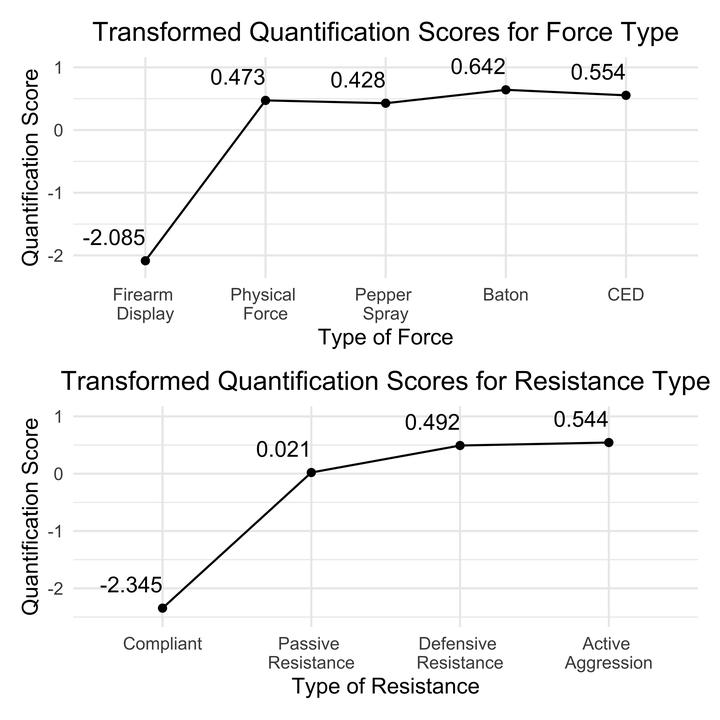
Abstract
Most use-of-force policies utilized by U.S. police agencies make fundamental ordinal assumptions about officers’ force responses to subject resistance. These policies consist of varying levels of force and resistance along an ordinally-ranked continuum of severity. We empirically tested the ordinal assumptions that are ubiquitous to police use-of-force force continua within the U.S. using one year’s use-of-force data from a municipal police department. Applying a quantitative technique known as categorical regression with optimal scaling we found the assumptions of ordinality within the studied department’s use-of-force continuum (which is similar to many police use-of-force continua within the U.S.) are not met. Specifying physical force as a ‘lower’ force option than less-lethal tools is associated with increased officer injury and decreased subject injury. Our findings call into question use-of-force continua featuring ordinal rankings for varying categories of less-lethal force.